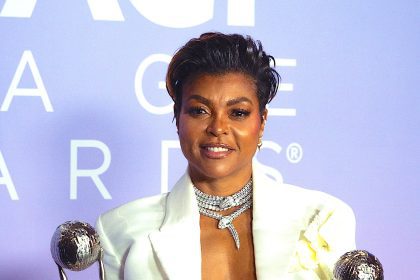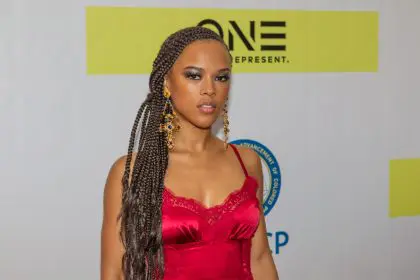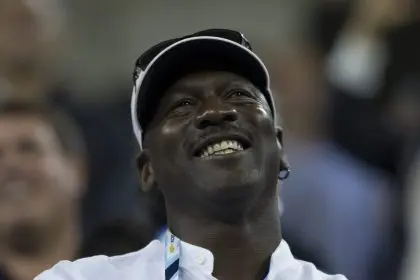The acclaimed comedian and Academy Award winner Mo’Nique continues her unwavering pursuit of vindication in her prolonged dispute with entertainment titan Tyler Perry. The conflict, which originated in 2009, sheds light on the complex power dynamics within Hollywood and raises important questions about professional reputation and industry blackballing that resonate far beyond this individual case.
Mo’Nique’s professional trajectory took a dramatic turn following her work on the critically acclaimed film Precious. Despite delivering a performance that earned her an Oscar, tensions arose when she declined to participate in promotional activities at the Cannes Film Festival—an appearance that was not stipulated in her contract. This decision prompted Perry, who served as an executive producer alongside Oprah Winfrey, to reportedly label the actress as “difficult to work with.”
This characterization, according to Mo’Nique, has significantly hindered her career advancement over the past decade. The actress maintains that opportunities dramatically decreased following these events, effectively creating an unofficial industry blackballing that has prevented her from securing roles commensurate with her talent and previous success.

Seeking public accountability
Throughout this prolonged dispute, Mo’Nique has utilized various platforms to advocate for herself. She has shared recorded conversations where Perry allegedly acknowledges wrongdoing and has consistently called for public accountability regarding how the situation has affected her professional opportunities.
In a recent conversation with comedian Rodney “Red” Grant, Mo’Nique reiterated that she is not difficult to work with, but simply refuses to tolerate foolishness. This position encapsulates her central argument—that standing up for oneself professionally should not result in career sabotage.
Promises unfulfilled
A particularly contentious aspect of this dispute centers around audio from 2017 where Perry reportedly acknowledged the unfairness of Mo’Nique being penalized for declining promotional activities that weren’t contractually required. According to Mo’Nique, Perry even promised a formal apology once tensions subsided, but this reconciliation has yet to materialize despite the passage of years.
The absence of this promised resolution has only strengthened Mo’Nique’s resolve to continue speaking out, as she believes accountability is necessary not just for her personal vindication but for establishing healthier industry standards.
The professional cost of reputation damage
The true impact of this conflict extends beyond personal grievances to tangible professional consequences. Industry observers and supporters of Mo’Nique speculate about the numerous roles and opportunities lost during the twelve years since this dispute began—potential projects that might have further showcased her considerable talents.
For any professional, regardless of industry, such an outcome represents an unacceptable career limitation based on what Mo’Nique maintains is a false characterization of her work ethic and professionalism.
Black women navigating Hollywood power structures
This situation highlights the particular challenges faced by Black women in the entertainment industry, who often encounter additional scrutiny and barriers when advocating for themselves professionally. Mo’Nique’s persistence represents not just a personal battle but resonates with broader conversations about equity and fair treatment within Hollywood.
Her refusal to remain silent, despite potential further career repercussions, demonstrates remarkable courage and conviction. Rather than viewing her continued advocacy as excessive, it can be interpreted as necessary resistance against industry practices that disproportionately impact marginalized voices.
The path toward resolution
Rather than expecting Mo’Nique to abandon her pursuit of vindication, industry figures and observers might better serve the situation by encouraging constructive dialogue between the parties involved. Both Mo’Nique and Perry could potentially benefit from addressing their disagreements directly, potentially leading to mutual understanding and professional reconciliation.
Such a resolution would not only benefit the individuals directly involved but could establish a valuable precedent for how similar conflicts might be addressed within the entertainment industry moving forward.
The broader entertainment community stands to gain from supporting honest conversations about power, reputation, and professional consequences—creating more transparent standards that protect artists’ ability to advocate for themselves without fear of career destruction.
Mo’Nique’s persistent stance serves as a powerful reminder that true justice often requires sustained effort and unwavering commitment, especially when challenging entrenched power structures. Her journey illustrates that sometimes the most difficult battles are those fought not just for personal vindication, but for the principle of fair treatment that benefits all professionals navigating complex industry relationships.
As this situation continues to evolve, Mo’Nique’s determination to reclaim her narrative and professional standing remains an important example of advocacy in the face of seemingly insurmountable industry obstacles.
















